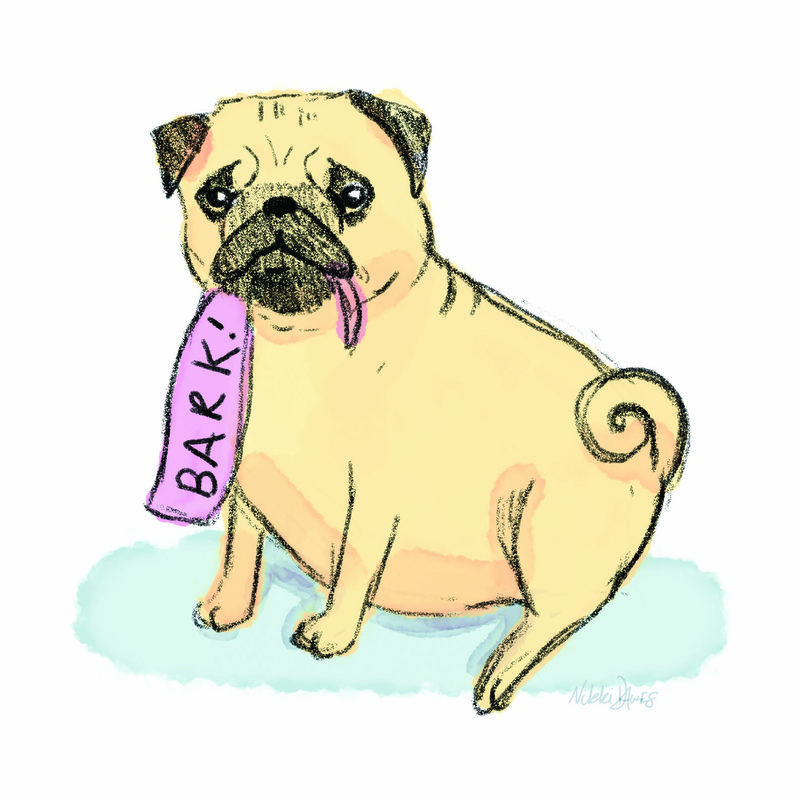Man's best friend has its paws all over the English language.
Phrases that refer to dogs describe any number of conditions: good, bad, persistent and in trouble.
I suspect that when these idioms came to be, dogs had much harder lives than they do today. I know our family dog, Capo Bianco, had a pretty sweet life. We fed him, petted him, housed him, walked him, groomed him and even hid his medicine in only his favorite treats.
A dog's life is defined as a miserable existence. Capo's life was one to be envied.
The dog phrases show canines have had it rough.
When you get the flu, you feel sick as a dog.
A dog-eat-dog world, as the name implies, is a vicious place. A place that has gone to the dogs is rundown. A doggery is a dive.
When you've done something terrible, you're in the doghouse. (Oddly, I hear this phrase most often in connection with things husbands do.)
Some phrases are more positive. Being top dog, the dominant one, is good. You can be a lucky dog. But you can also be a dirty dog. Dogged can go both ways,
also. It can mean persistent and hard-working. It can also mean stubborn and unyielding. Apparently no two dogs are alike.
I was surprised to learn that doggerel, an undisciplined or trivial wording, has a canine root. Merriam-Webster suggests that doggerel is verse a young pup might write.
Even dog meals are phrases. A dog's breakfast means a big mess, though this is mainly a British phrase. When one is dressed like a dog's dinner, one is wearing fancy, attention-grabbing clothes. I hadn't heard that one before.
The dog days of summer are the hot, steamy ones. This phrase is from Roman times, when people noticed that the hottest days arrived when Sirius, also called the Dog Star, appeared in the sky. Sirius, the brightest star, is part of the Canis Major constellation.
Felines seem to sneak, catlike, into dog phrases.
Siblings may fight like cats and dogs. That makes sense, because often cats and dogs don't get along.
But where does "raining like cats and dogs'' come from? I couldn't find an answer to that. A form of it was used as far back as 1653, in Richard Brome's comedy The City Wit or The Woman Wears the Breeches in a description of a storm:
It shall raine ... Dogs and Polecats.
But a polecat is a weaselly, weasel-like creature and not a cat.
So maybe we have all been deceived.
Sources: phrases.org.uk, thefreedictionary.com, wordreference.com, dictionary.com, m-w.com
Reach Bernadette at
bkwordmonger@gmail.com
ActiveStyle on 05/15/2017
